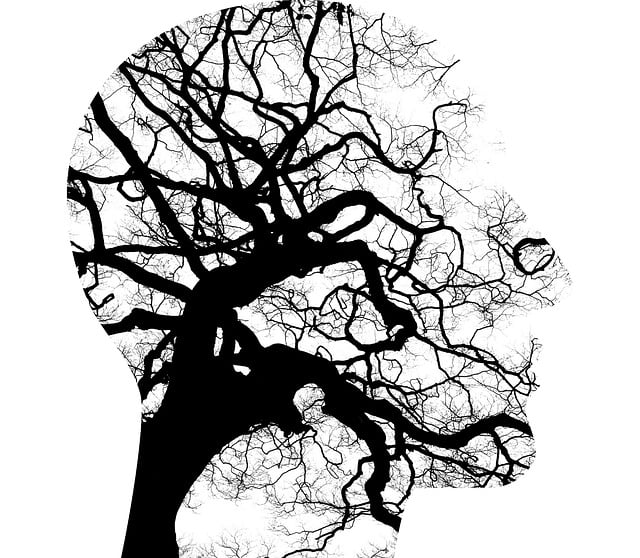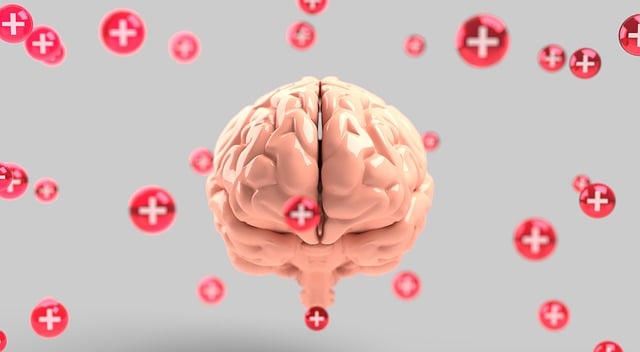Young adults transitioning into adulthood face unique challenges, including higher education, career exploration, and increased independence, often coupled with heightened mental health concerns. Bilingual therapy is a game-changer in mental health support for this demographic, addressing communication barriers and cultural nuances that hinder access to care, especially for depression prevention. Effective coaching programs should incorporate cultural intelligence techniques, comprehensive risk assessments, stress management workshops, and evidence-based practices tailored to academic, career, and social pressures. By using validated assessment tools translated into relevant languages, coaches can accurately track progress and implement targeted interventions, fostering mental wellness among bilingual young adults.
Mental wellness coaching programs tailored for young adults are gaining traction, addressing their unique psychological needs. This article explores key aspects of developing effective interventions, including understanding the specific challenges faced by this demographic and incorporating cultural sensitivity. We delve into the benefits of bilingual coaching in mental health support, and provide strategies for designing engaging therapy programs. Additionally, we discuss metrics for measuring success and tracking progress, highlighting the importance of tailored approaches to ensure positive outcomes for young adults seeking mental wellness support, especially through bilingual therapy.
- Understanding the Unique Needs of Young Adults
- The Role of Bilingual Coaching in Mental Health Support
- Designing Effective Therapy Programs for This Demographic
- Incorporating Cultural Sensitivity and Inclusion
- Measuring Success and Tracking Progress in Coaching Interventions
Understanding the Unique Needs of Young Adults

Young adults face distinct challenges as they navigate the transition from adolescence to adulthood. This period is characterized by a multitude of life shifts, including higher education, career exploration, and increased independence. However, it’s also a time when mental health issues often emerge or intensify. Therefore, mental wellness coaching programs tailored for this demographic must be sensitive to their unique needs.
Bilingual therapy, for instance, can be invaluable in reaching out to young adults who might otherwise face communication barriers. Effective coaching should incorporate emotional intelligence techniques to help individuals process and manage complex emotions effectively. Moreover, a comprehensive risk assessment for mental health professionals is essential to ensure these programs are safe, supportive, and tailored to address the specific challenges faced by young adults, ultimately fostering their overall mental wellness.
The Role of Bilingual Coaching in Mental Health Support

Bilingual coaching plays a pivotal role in enhancing mental health support for young adults, particularly those from diverse cultural backgrounds. In today’s globalized society, many individuals face unique challenges when accessing therapy due to language barriers and cultural differences. Bilingual coaches bridge this gap by offering services in multiple languages, ensuring effective communication and understanding. This is especially crucial for depression prevention, as early intervention can significantly impact positive outcomes.
By incorporating cultural competency training for healthcare providers, these programs foster an inclusive environment. Coaches with expertise in both therapy and their clients’ native languages facilitate inner strength development. They navigate the complex labyrinthine of mental health concerns, providing tailored support that respects individual cultural enigma while empowering folks to overcome challenges. This approach ensures that young adults receive personalized care, addressing not just symptoms but also the unique cultural factors influencing their well-being.
Designing Effective Therapy Programs for This Demographic

Developing effective therapy programs tailored for young adults requires a deep understanding of their unique challenges and preferences. This demographic often faces pressures related to academics, careers, and social expectations, contributing to heightened stress levels and mental health concerns like depression. Therefore, therapy should be inclusive, engaging, and accessible, addressing these issues through evidence-based practices.
Bilingual services are essential in ensuring that young adults from diverse cultural backgrounds can access support without language barriers. Incorporating this approach not only caters to a broader audience but also enhances the effectiveness of therapy by enabling deeper exploration of cultural influences on mental wellness. Additionally, incorporating stress management workshops and regular risk assessments as part of these programs empowers individuals with coping mechanisms while allowing mental health professionals to proactively monitor and address emerging issues.
Incorporating Cultural Sensitivity and Inclusion

Incorporating cultural sensitivity and inclusion is an essential aspect of developing effective mental wellness coaching programs, especially when catering to young adults in a diverse society. Given that one-third of American adults identify as multiracial or multicultural, it’s crucial for therapists and coaches to understand and respect the unique backgrounds and experiences of their clients. This involves adapting therapeutic approaches to align with the individual’s cultural identity, incorporating their traditions, beliefs, and values into the treatment plan. For instance, a young adult from a bilingual family might benefit from therapy sessions conducted in both languages, fostering a sense of comfort and understanding.
When designing coaching programs, therapists should prioritize learning about their clients’ cultural contexts, including their heritage, migration stories, and community influences. This knowledge allows for the development of coping skills that are culturally relevant and meaningful. By integrating Mind Over Matter principles, which emphasize the power of mental resilience, coaches can guide young adults in cultivating self-care routines tailored to their cultural backgrounds. For example, promoting mindfulness practices inspired by ancient meditative traditions or encouraging journaling as a form of reflection, similar to written records used in some cultures, can contribute to better mental health and overall wellness.
Measuring Success and Tracking Progress in Coaching Interventions

Measuring success and tracking progress are essential components of any effective coaching intervention, especially when catering to young adults seeking therapy. In the context of bilingual populations, it becomes even more critical to implement tailored assessment tools that account for cultural nuances and language barriers. By utilizing validated measurement instruments translated into relevant languages, coaches can accurately gauge clients’ mental health status, identify specific areas of improvement, and set meaningful goals. Regular monitoring of these progress markers ensures that coaching sessions remain focused, allowing coaches to adapt strategies accordingly, whether it’s boosting confidence or implementing empathy-building techniques.
For bilingual young adults, progressive tracking enables coaches to assess the impact of cultural adaptation strategies on mental health awareness and overall well-being. This data-driven approach facilitates personalized support, fostering an environment where individuals feel heard, understood, and empowered to navigate their unique challenges. Through careful measurement and ongoing evaluation, coaching programs can effectively contribute to positive mental health outcomes, especially when addressing issues relevant to young adults, such as building resilience and enhancing coping mechanisms.
Mental wellness coaching programs tailored for young adults must address their distinct needs, incorporating cultural sensitivity and bilingual support where necessary. By understanding the effectiveness of various therapeutic approaches and tracking progress through measurable outcomes, we can develop inclusive interventions that foster healthy development in this demographic. Investing in such programs is key to ensuring young adults receive the specialized mental health care they deserve, ultimately enhancing their overall well-being.














